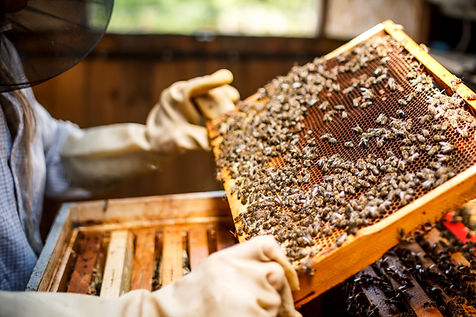
Frequently asked questions
1. My honey has crystallized, Is that normal and what can I do to fix it?
Crystallization is honey's natural way of preservation. Some prefer real honey that is partly or even completely crystallized. However, If you prefer your honey smooth, all you need to do is place your jar of honey in a pot of heated water, making sure that you have the lid closed tight to ensure water doesn't go inside the jar. Check on it periodically until you can see that all the crystals have melted.
2. How should I store my honey?
The best place to store real natural honey is in your pantry. Keeping your honey in the fridge can cause your honey to crystallize which you may or may not want.
3. What is special about Manuka honey?
Manuka honey is a complex honey that is much more than simple table honey. Manuka honey can be referred to as medicinal honey because it has a high antibacterial activity and has been shown to be good for wound healing and can help to relieve sore throats, mouth ulcers, sore gums and possibly indigestion. The bees collect the honey from a specific type of flower called Leptospermum which is native to Australia and New Zealand.
4. What is MGO?
MGO stands for Methylglyoxal. It is the naturally occurring compound that makes Manuka honey so special. The higher the amount of MGO the stronger and more medicinal properties the honey contains.
5. Does honey have a use-by date?
Your honey will have an expiry or best before date printed on the back of the honey jar. Although honey generally will last indefinitely with proper storage (airtight container away from moisture), some countries require honey to have an expiry date or best before the date written on the jar.
6. Can you give Manuka honey to infants under 12 months?
No. It is not recommended to give children under 12 months any honey. This is because honey contains a bacteria called Clostridium botulinum bacteria that can produce toxins in a baby's intestines, leading to infant botulism, which is a very serious illness. We do not recommend that you give your child honey until they are over the age of 1.
